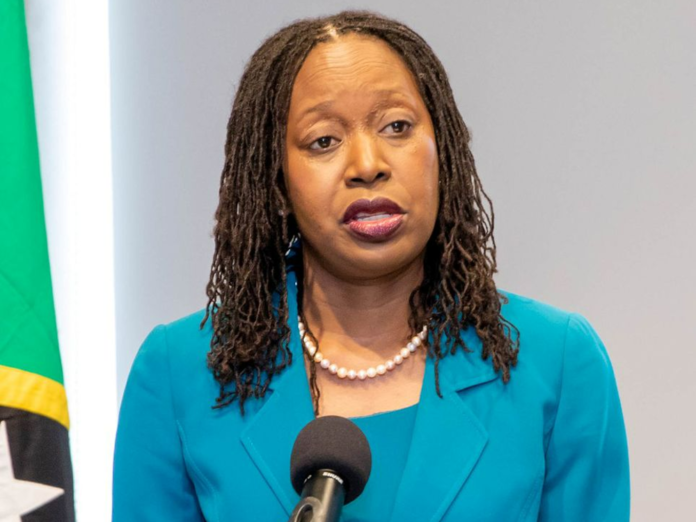
The Caribbean Disaster Emergency Management Agency (CDEMA), an inter-regional support network of independent emergency units throughout the Caribbean region, has some new tools to respond to any disaster this hurricane season.
During their annual Atlantic Hurricane Season media conference on Tuesday, CDEMA executive director Elizabeth Riley said the agency is fully prepared to offer support to the region, mainly due to advancements in training and equipment.
Riley explained, “Last year, 36 people were trained across the CDEMA states, bringing the total to 60. We also upgraded the deployment kits and procured additional search and rescue equipment for these regional teams.”
However, this year, Riley said communication improvements within CDEMA remained a priority, stating it “is usually one of the critical areas impacted after events”.
Riley added that CDEMA now has nine additional Starlink internet satellite terminals, two Hornet terminals, and six BLUETTI Goalzero solar generators for their teams.
In addition, Riley said, “We have also expanded the number of cellphones and laptops for deployment and have 20 global positioning system (GPS) units, additional power supplies, and travel or carrying cases.”
She further explained, “We also have the Caricom emergency telecommunications team, and 14 operators have been trained across the region in using the specialised communication deployment kits which we’ve prepared for them, and they stand ready to support you as required.”
This year, the Atlantic Hurricane Season is forecast to be extremely active, with the US-based National Oceanic and Atmospheric Administration and the Colorado State University issuing some of their most aggressive pre-season forecasts on record. Colorado State University forecasted 23 named storms, 11 of which may become hurricanes and five which may strengthen into major hurricanes at Category three or higher on the Saffir-Simpson Hurricane Wind Scale. The average hurricane season produces 14 named storms, seven hurricanes, and three major hurricanes.
With the high potential for Caribbean states to be impacted by tropical storms and hurricanes, CDEMA has touted the importance of partnerships.
Last year, CDEMA partnered with Global Support and Development (GSD), a humanitarian non-profit organisation whose vision is to ensure every community can recover from disaster. GSD posted a state-of-the-art humanitarian vessel, MV Dawn, in the region to provide disaster and humanitarian support to affected states and accommodation for responding humanitarian workers.
While this arrangement with GSD remains for the 2024 Atlantic Hurricane Season, Riley said new partnerships have bolstered its logistical capabilities. She noted the agency recently signed a memorandum of understanding with King Ocean Services Limited, a cargo shipping company, to “provide cargo transportation services for the movement of supplies, ensuring an immediate and coordinated response to regional disasters”.
Additionally, CDEMA is collaborating with Global Affairs Canada, to provide air and maritime logistic support and the Canadian Armed Forces to assist any of CDEMA’s affected participating states.

